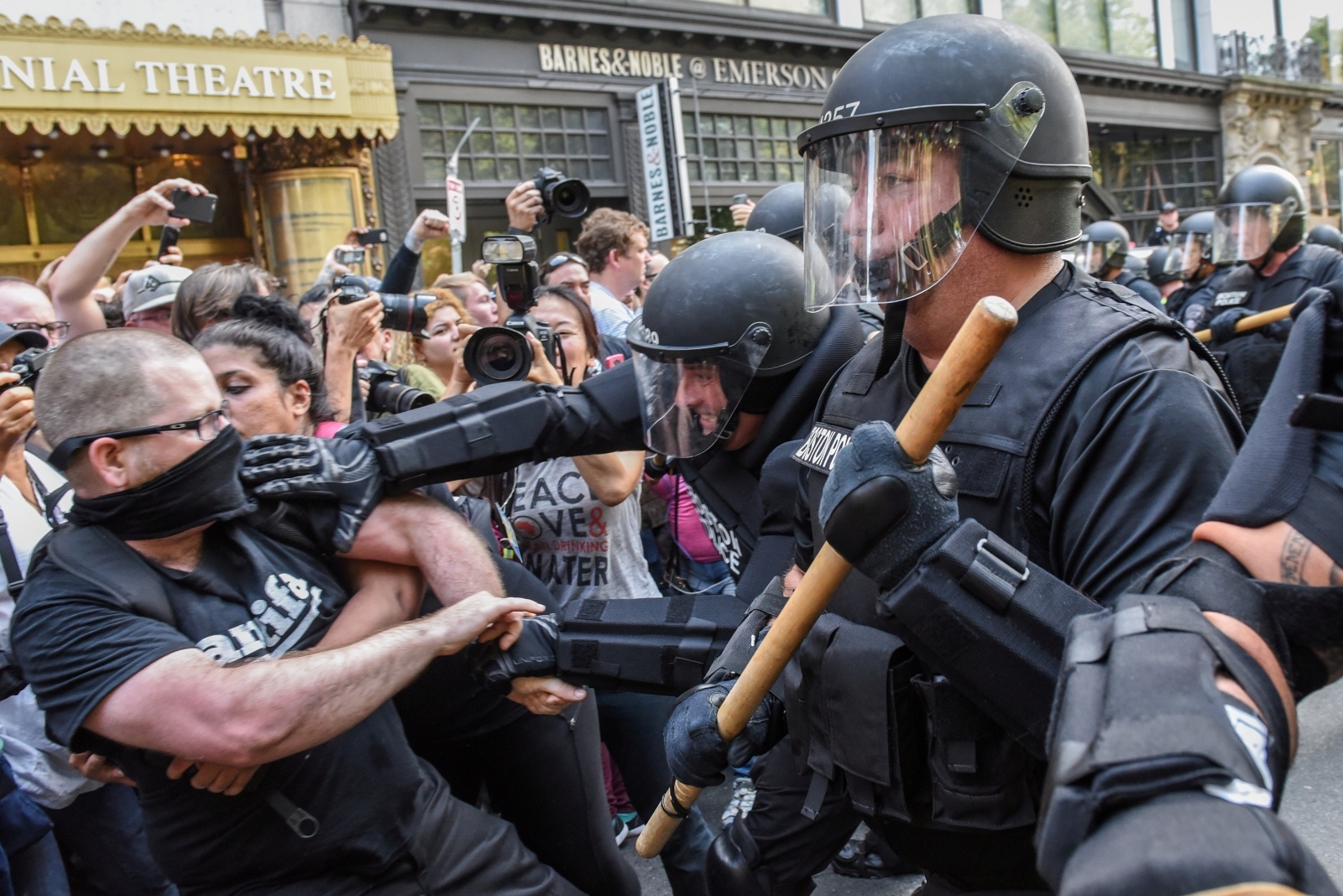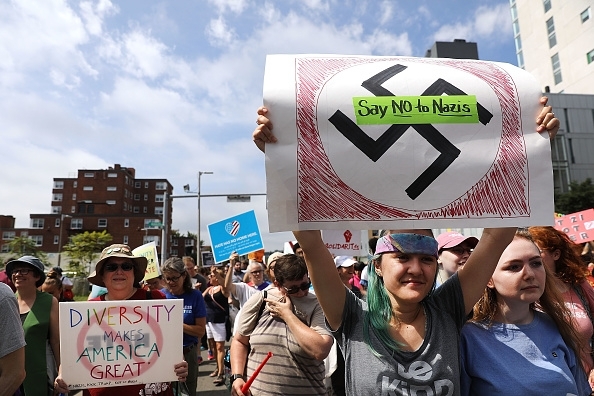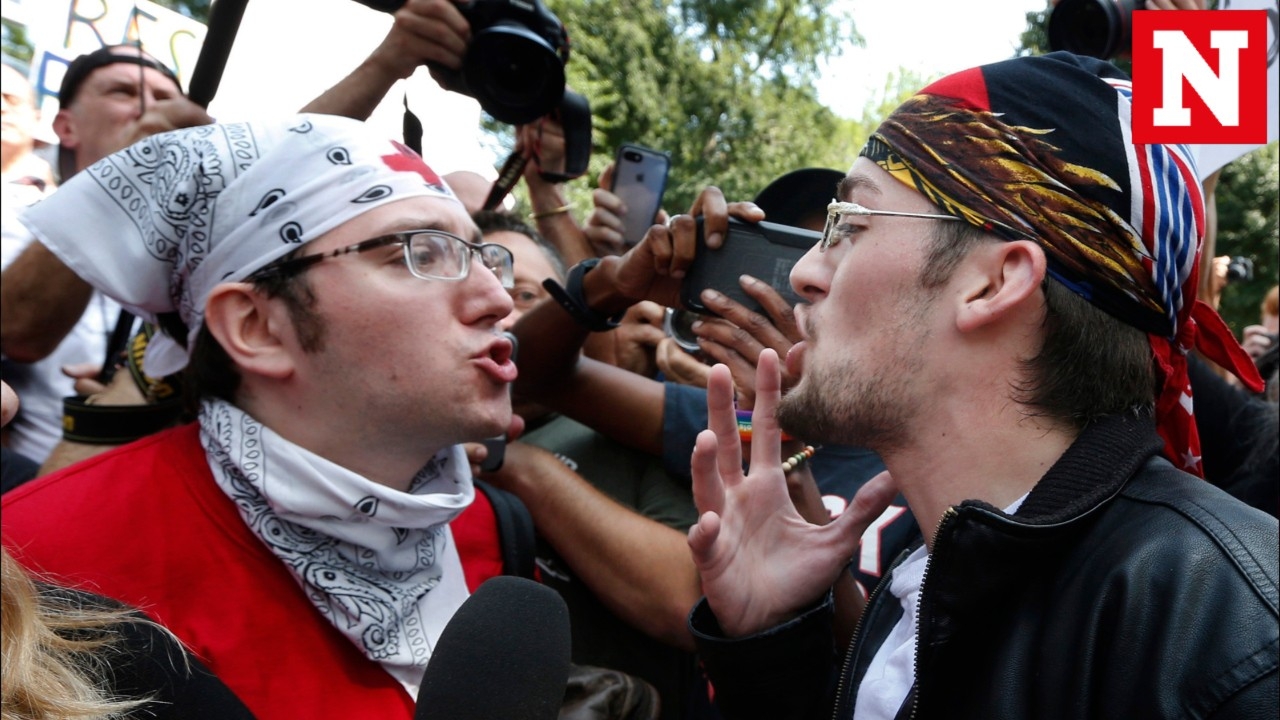The alt-right and alt-left dunderheads are making a mockery of American democracy
Each side needs the other and builds up the opposition as larger and more menacing than it really is.
There is escalating violence in the United States between two sets of extremists. On the one hand, a gang of racists chanting "blood and soil", evidently not knowing or not caring that America, a creedal nation, defeated two sets of blood-and-soil nationalists in 1945.
On the other, a mob of violent anarchists who seek to silence anyone they don't like through physical coercion, in particular preventing conservative speakers from addressing universities.
Both sets of radicals have the nous to smuggle themselves into wider movements, or at least to focus on causes which have wider support.
The anarchists don't present themselves as opponents of American democracy, but as enemies of fascism, hence the name they go by: "antifa". It's an odd name for people who want to ban books, tear down cultural monuments they dislike and categorise everyone by race, but there we are.
A similar name was used by mid-twentieth-century Communists as they established their "anti-fascist" dictatorships in central Europe. Perhaps one or two credulous souls fell for it then, too.
The racists, likewise, seek to infiltrate themselves into broader movements, such as that in support of free speech, or that which opposes the demolition Confederate statues. These are, of course, easier issues to take up in public than unadorned white supremacism.
Each side needs the other. Each builds up the opposition as larger and more menacing than it really is. The term "alt-right" was originally a self-description, coined by authoritarian and often racist agitators as a way of distinguishing themselves from mainstream Republicans.
Now, though, it has displaced "neo-con" as an inchoate term for "anyone I don't like". For example, A.C. Grayling idiotically referred over the weekend to Patrick Minford, a pro-market academic, as an "alt-right economist".
Donald Trump recently referred to the other side as the "alt-left", but I prefer Maajid Nawaz's term "ctrl-left", for the essence of their movement is intolerance of anyone who disagrees.
Both sides refuse to acknowledge the difference between disliking something and seeking to ban it. Yet that difference is what makes an open society. Paradoxically, the mood of tolerance was especially strong in the United States immediately after the Civil War. Neither Abraham Lincoln nor any of his successors wanted to ban monuments to the Confederate dead.
Americans, unusually, quickly came to honour the fallen on both sides – something that cannot be said of most civil wars, as any Russian or Spaniard will tell you. The readiness of each party to acknowledge the humanity of the other marked, in some ways, the birth of today's united American polity.




The ctrl-left shows no such magnanimity. The past few weeks have seen statues torn down, battle re-enactments cancelled and even the digging up of the grave of a Confederate general. Such ghoulishness has, inevitably, encouraged an equally ugly movement from the other side.
Put it another way. American public life has promoted identity politics of various kinds since the 1960s. Eventually, identity politics were bound to infect some angry white people, too. I wrote on IBTimes UK when Donald Trump became president that his opponents would shore up his support; and so they have.
It works both ways. The alt-right are able to pose as defenders of freedom against a movement that wants to shut down all dissent. The ctrl-left claim to stand for the pluralism of the Republic whose flag their defenders embarrassingly keep defending. In fact, both sides are illiberal, anti-democratic and thus, in the truest sense, anti-American. It's not in anyone's power to shut them down, and nor should it be. But let's at least stop taking these dunderheads at their own estimate. American democracy could do with a ctrl-alt-del.
© Copyright IBTimes 2025. All rights reserved.




















